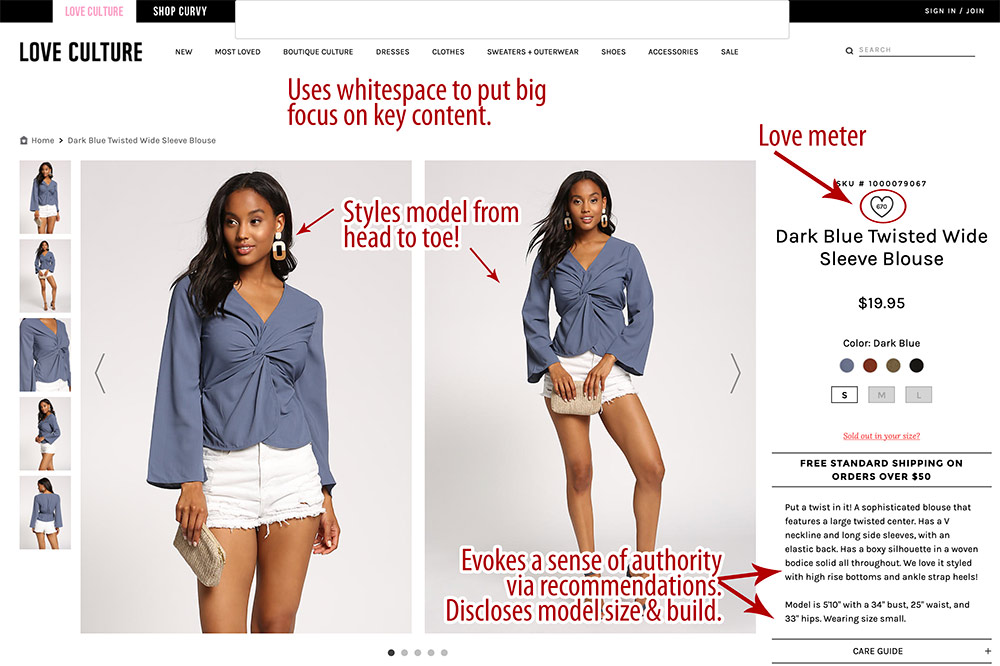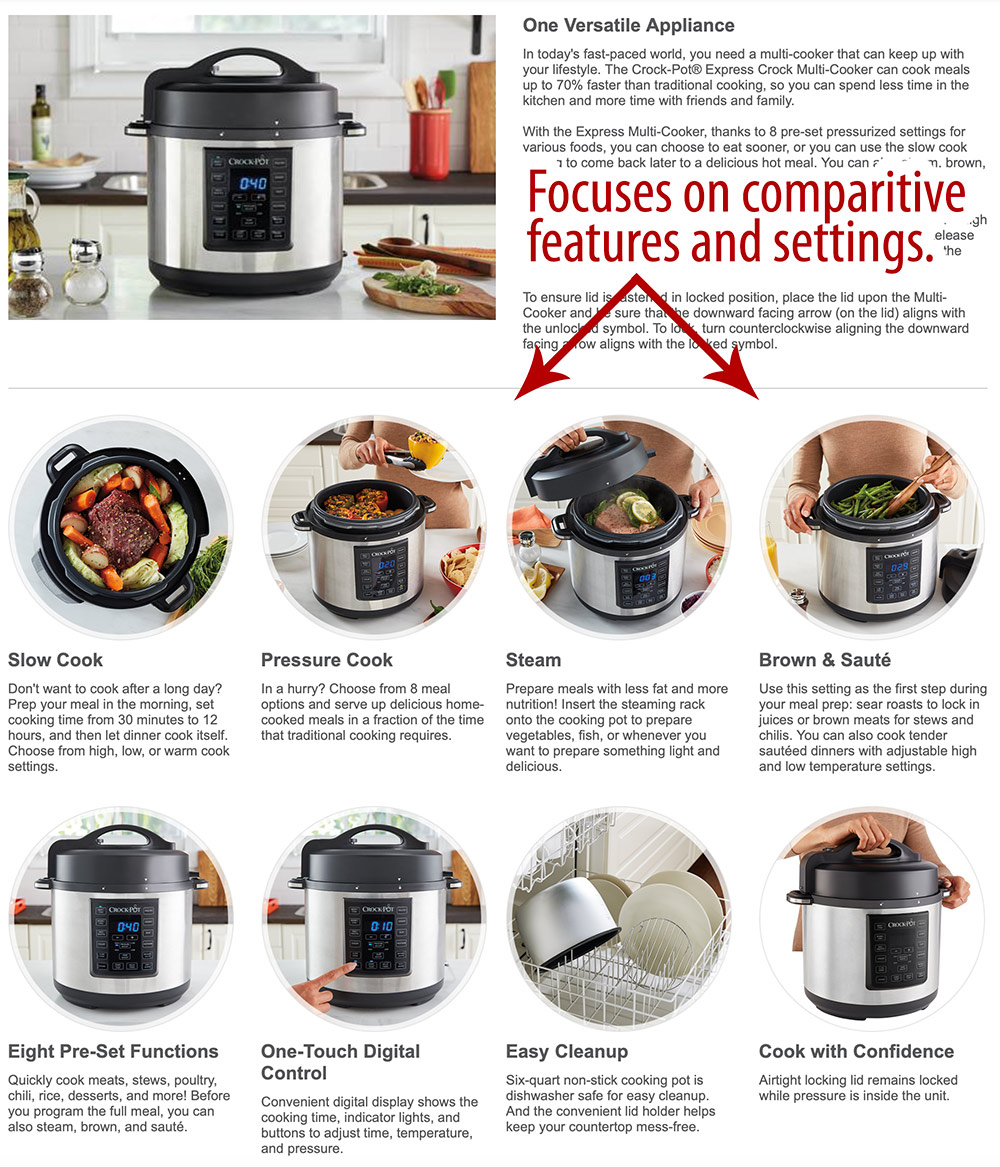I could offer hundreds of affordable, quick-to-implement tips on boosting ecommerce sales and increasing overall conversion rates. They would work best, however, for established brands with loyal audiences. No matter what you sell, your website should reflect your mission statement, and you should always strive to make your brand more recognizable and appreciated.
Positive branding is critical for any business. It takes a lot of work over time, but the benefits make it worthwhile. The products you sell, interactions with shoppers, transparency — all impact branding.
Elements of a Brand
The style of products you sell. This goes beyond product type. Successful branded clothing stores, for example, focus on evoking emotion by marketing to trend seekers, hipsters, or outdoor enthusiasts, to name a few. The logo, website design, and product descriptions all work together to make this happen.

Love Culture uses design elements, site features, and terms that evoke emotion in its target audience.
Customer service. You want to be helpful and flexible, but the way agents speak with shoppers plays a big role in branding. If you haven’t studied how customers talk both with you and among their peers, it’s time to start. Do you sell smartphone accessories to millennials? Consider using emojis during live-chat conversations. Lending support to a senior citizen? Use short, common analogies. Inject humor when appropriate, too.
Original content. Ditch stock photography and ho-hum descriptions. Successful branding requires the investment of time and money when it comes to the catalog and supporting content. If hiring a professional photographer isn’t in the budget, get to know your smartphone’s camera. Plenty of sites feature stellar product photos taken from native camera apps. And don’t forget customer service reps. To personalize the site, use photos of real customer agents!

Smartphone cameras are now capable of taking store-worthy photos. Source: Van Halen Store.
Quality and value. No matter the product, shoppers seek quality and value. Lower-priced products of the same or better quality need extra attention because shoppers will wonder why they cost less, especially for items that compete against the latest trends.
For example, a Crock-Pot Express costs less than the comparable series from Instant Pot. Consumer Reports says Crock-Pot Express is a better unit overall. But during the 2018 holiday season, Instant Pot was a top gift. Stores selling only the Crock-Pot versions should follow the company’s lead and call attention to all the comparative features.

Find ways to show how your products compare or exceed others. Source: Crock-Pot.
Lower-quality substitutes are often acceptable if they come at a better value. Be clear about how your products address pain points and improve lives — even if part of that is about saving money. For example, Ruffies trash bags aren’t as strong as Glad Forceflex, but many shoppers are willing to sacrifice that level of quality for a much lower price.
Transparency. If you want consumers to give you their hard-earned money, be honest all around. This includes:
- The company’s history and mission statement. Use the about-us page to explain how the company started, its timeline, and what it stands for.
- Causes and organizations you support. You should be proud of both financial and labor contributions. Feel-good posts of check presentations, thank you letters, and photos of staff volunteering for causes goes a long way.
- Real and verifiable product descriptions. Being honest helps sell more and reduces returns, too.
- Authentic product reviews (positive and negative). No product is loved by 100 percent of shoppers. Displaying only positive reviews breaks consumer trust.
- Protecting customer data. This is a big one. Shoppers need to know what’s going to be done with their credentials. The best policy is to not share the data with any outside sources.
A place for customers to share the love. User-generated content does more than encourage more purchases. It makes customers feel like they’re part of your brand’s family. Encouraging people to post photos, videos, and stories about your company and products can increase visibility across the web, including social media.
Squishable was an early adopter of user-generated content and has, for years, provided customers with a sense of community. The site’s voting section lets enthusiasts have a voice in future products.

Give customers a place to shine, and they’ll feel more appreciated, even when they’re providing the content. Source: Squishable.
Long-term Success
If your goal is to build a long-term, sustainable business, focus on branding. This all-important practice will be a key component to your store’s popularity and lifespan, no matter what you sell.